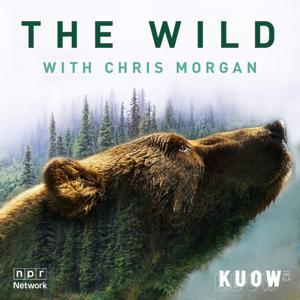In remembrance of Jane Goodall (4/3/34 - 10/1/25), we're bringing back our conversation featuring her life and legacy. Luminary Dr. Jane Goodall for decades made significant contributions to not only the scientific world, but arguably, to the entire planet.
When 26-year-old British-born Jane Goodall began field studies of primates in Tanzania in July 1960, she was the first researcher to observe chimpanzees in the wild, and she remains the world's foremost expert on chimpanzees. Her rigorous and creative approach quickly gained the attention of the National Geographic Society, which awarded her first grant, and has passionately championed her work in the decades since. Despite never getting a college degree, Dr. Goodall was accepted at Cambridge University, earned her PhD in ethology in 1966, and spent decades in the Gombe Stream National Park studying chimpanzee communities, eventually becoming the only human to ever be accepted into a chimpanzee society.
In her 90 years, Dr. Goodall was a legendary conservationist, galvanizing educator, UN Messenger of Peace, and an inspiring writer and public speaker. Her curiosity, empathy, wisdom, protective heart, and unshakeable hope reflect the best of humanity, and even though her conversation was short, you'll hear all of those exemplary characteristics embodied in her voice and story.
- Read the transcript of this episode
- Subscribe to Stories of Impact wherever you listen to podcasts
- Find us on Facebook, Twitter, Instagram and YouTube
- Share your comments, questions and suggestions at [email protected]
- Supported by Templeton World Charity Foundation


























